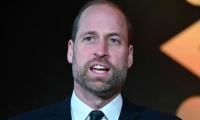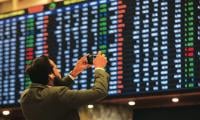Colombo: Crisis-hit Sri Lanka said Monday it would take responsibility for $1.7 billion owed to China by state enterprises as it seeks to sell them off and restructure its foreign debt to secure an IMF bailout.The government of President Ranil Wickremesinghe is in talks with the Washington-based lender as it seeks funding to enable the island to recover from its worst-ever financial crisis.His predecessor Gotabaya Rajapaksa was forced to flee the country and resign after demonstrators overran his house following months of protests over the unprecedented economic hardships faced by the 22 million population.
Sri Lanka defaulted on its foreign debt in April and the IMF has said its borrowings must be "sustainable" to unlock any new external funding. That will require its creditors to take a haircut on their loans, but China is its biggest lender and Beijing has given no indication it is willing to do so.
Wickremesinghe said $1.7 billion in loans taken from China´s Export-Import Bank by three key loss-making state-owned enterprises (SOE) -- the electricity utility, Port Authority, and Airport and Aviation Services -- would be considered government debt.
Taking the loans off their books will strengthen their balance sheets, which could make them more attractive to buyers or outside investors. The IMF has said the country should also restructure its loss-making state enterprises.
Wickremesinghe, who is also the finance minister, signalled the selling-off of five state-owned companies, including the national carrier SriLankan Airlines -- which has debts of more than $1 billion -- to reduce the strain on the national budget.
Proceeds from the "restructure" of the companies will be used to boost the country´s depleted foreign reserves, he said, without giving estimates. "A glimmer of hope on emerging from the economic abyss is currently visible," Wickremesinghe told parliament as he presented his first full budget in the legislature.
"After the era of waiting in queues for days and protesting in various occupied places, our sufferings have been eased to some extent and we have reached an era where our peace of mind is much settled."
He said bailout talks with the International Monetary Fund were on track and hoped for a deal with lenders. "We are confident that these discussions will lead to positive outcomes," he added. The government revised its external debt figure down from $51 billion to $46 billion.
Just over $14 billion of that is bilateral debt owed to foreign governments, of which China holds 52 percent. Wickremesinghe, a six-times prime minister, has sharply raised taxes and increased fuel, water and electricity tariffs and rationed petrol and diesel since coming to power in July.
Budget
President Wickremesinghe said the economy can turn around by the end of 2023 if budget policies, which are not limited to the International Monetary Fund's recommendations, are followed.
IMF recommendations have only been looked at to stabilise the economy, Wickremesinghe, told parliament, delivering the first annual budget since he took office in July.
The budget included measures aimed at reducing the government's deficit as Colombo seeks to secure an IMF bailout package to help the country recover from its worst financial crisis in decades.
Soaring inflation, a weakening currency and low foreign exchange reserves have left the island of 22 million people struggling to pay for imports of essentials such as food, fuel and medicine.
Wickremesinghe laid down several medium-term targets for the government: increasing international trade as a percentage of GDP by more than 100 percnet, annual growth of $3 billion from new exports over the next 10 years as well as attracting $3 billion in foreign direct investment over the same period. He also said the government planned to reduce debt to less than 100 percent of GDP over the medium term and achieve economic growth of around 7-8 percent.
"With a lot of taxes already implemented, on the revenue side the budget primarily seems to be aiming towards tax administrations, reducing the leakages and broadbasing the tax net," said Trisha Peries, head of research at CAL Group. Analysts also said tax collections would be vital for the country, since it was unlikely to be able to cut expenditure massively in an effort to fund the welfare schemes, while the government's ability to meet its interest payments will also be watched. The World Bank estimates Sri Lanka's economy will contract by 9.2 percent in 2022 and 4.2 percent next year.
A representational of a mine in Balochistan. —Reuters/File KARACHI: Bolan Mining Enterprise , a joint venture...
A Sindh Bank branch seen in this undated image.— Buzdy.com/file KARACHI: Sindh Bank organised a Haj balloting...
This representational image shows Gold bars. — AFP/FileKARACHI: Gold prices rose by Rs1,600 per tola on Wednesday in...
Dr. S Akbar Zaidi, Executive Director, IBA Karachi and Farrukh H. Sabzwari, Managing Director & CEO, Pakistan Stock...
Donald Trump displays his signature after signing the $1.5 trillion tax overhaul plan in the Oval Office of the White...
A visual representation of the digital cryptocurrency Bitcoin. — AFP/FileNEW YORK: Investors in the world’s...







